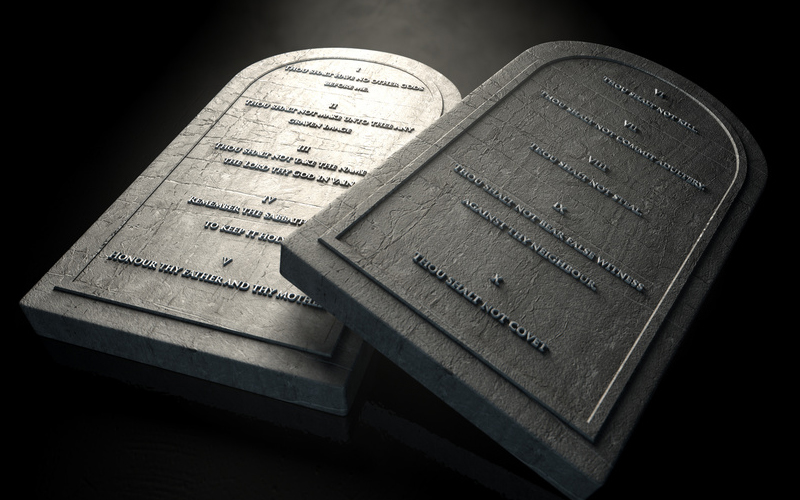Our sermon series this term concludes with the famous Decalogue. Yet the role of the 10 Commandments has been widely misunderstood, with many believing they are Israel’s side of the Siniatic Covenant. Yet the Siniatic Covenant is NOT a bilateral (2-way) covenant in which the covenant will only remain intact if both parties fulfil their covenant obligations. To begin with:
Ex 19:5 Now if you obey me fully and keep my covenant, then out of all nations you will be my treasured possession.
Notice that the covenant is already in existence before the Law is given. This is because in the Bible, a divine-human covenant is always a unilateral (1-way) covenant, where God dispenses his grace on people (e.g. Noah, Abraham, David). The Siniatic Covenant was made when God rescued Israel from slavery in Egypt.
However, each divine-human covenant in the Bible does require a response from humans (e.g. Noah to build an ark; Abraham to ‘go’). Israel’s response is to obey God and keep his covenant. Yet failure to obey doesn’t result in the covenant ending; it just results in Israel no longer being God’s treasured possession (e.g. the exile).
The way God always deals with his people in the Bible is: God’s grace, followed by our response of obedience. This is why the prelude to the 10 Commandments is:
Ex 20:2 “I am the LORD your God, who brought you out of Egypt
The 10 Commandments are NOT a requirement to appease God and earn covenant salvation; Israel had already been given that in the Exodus. The 10 Commandments are Israel’s loving response to the enormous grace God had already shown them.
Brendan McLaughlin






